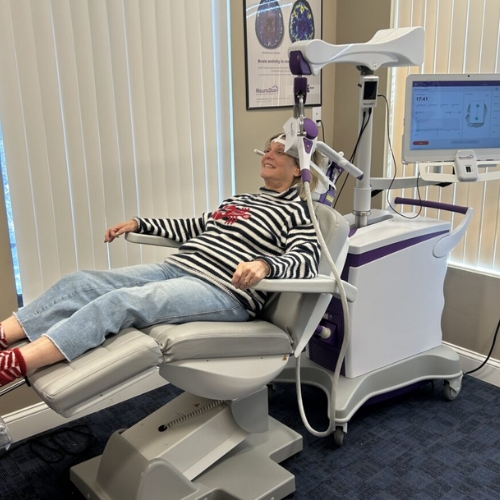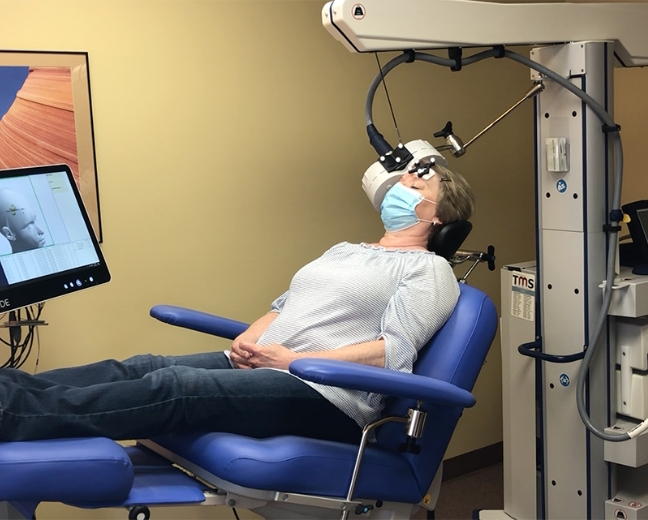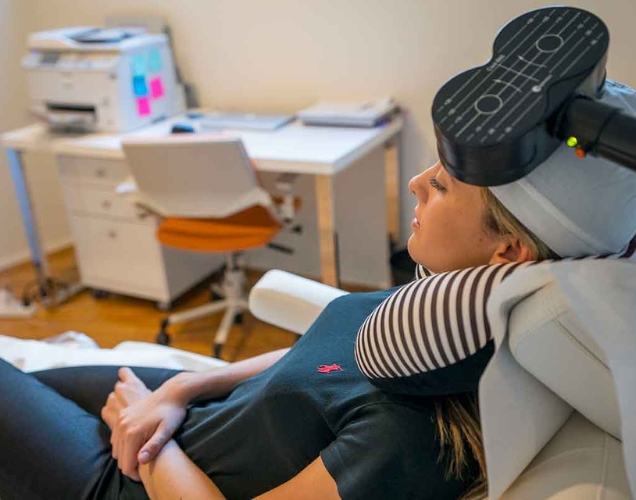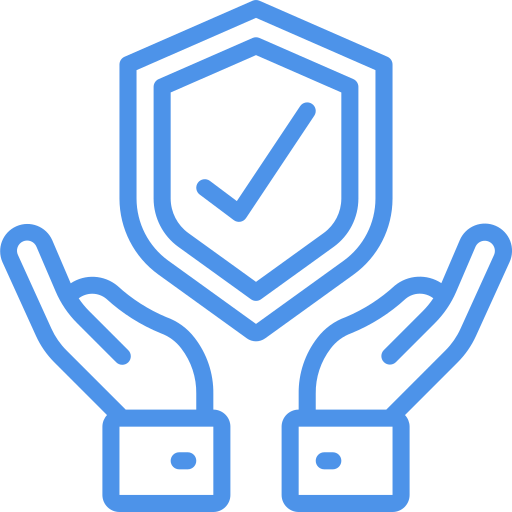TMS Therapy in Dallas, TX
What is TMS Therapy in Dallas
With a magnetic field, TMS changes brain activity. It covers other brain disorders, depression, and OCD. It is noninvasive brain stimulation and can assist when other therapies fall short. Generally mild and temporary are the side effects. Transcranial magnetic stimulation (TMS) uses a magnetic coil to change brain electrical activity noninvasively. Among those with psychiatric and neurological issues, this 1985 therapy is quite popular. Theta burst stimulation is a form of TMS that delivers bursts of pulses at frequency of gamma.

FDA-Approved Conditions Treated with TMS
TMS can help when other treatments fail. Its noninvasiveness makes it crucial. No surgery is needed, as the therapy is done via your skin. TMS can also replace ECT if it's ineffective or not an option. TMS is approved to treat different illnesses in different countries. FDA-Approved TMS Therapy in Dallas for following conditions:
Major Depressive Disorder
Major depressive disorder, or clinical depression, causes sorrow and anhedonia, affecting thoughts, emotions, and behavior. It leads to psychological and physical issues, making daily tasks difficult and life feel pointless.
Obsessive-Compulsive Disorder
OCD results in frequent uncomfortable thoughts and repeating actions. Usually, part of OCD treatment is medication management and psychotherapy. Recognising and treating OCD early leads to better results.
Migraine Headaches
Migraines are debilitating headaches with symptoms like nausea, visual issues, and irritability. A TMS doctor in Dallas can help manage migraines and prevent them from taking over.
Stopping Cessation
Smoking harms almost every organ, but quitting offers immediate and long-term benefits. Within 30 minutes, heart rate normalizes, and risks of heart attack and cancer decrease over time.
Adolescent Depression
Teen depression causes sadness, loss of interest, and changes in thoughts, feelings, and behavior. It can lead to emotional, functional, and physical issues, with symptoms different from adults.
Pain Management with MagVenture Pain Therapy
TMS Clinic in Dallas offers FDA-approved magnetic therapy to relieve chronic pain using noninvasive pulses for adults 18+.

Who Is Not a Candidate for TMS?
TMS Therapy in Dallas is a noninvasive treatment for depression and other mental problems; however, not everyone can benefit. Due to magnetic field interference, those with head implants like aneurysm clips, cochlear implants, or pacemakers are usually disqualified. Since TMS increases seizure risk, anyone with a history of seizures or epilepsy may be ineligible. TMS may cause manic episodes in uncontrolled bipolar disorder. The treatment may not work for patients with severe cognitive impairment, dementia, or neurological problems, including stroke or traumatic brain damage. Active substance addiction, untreated severe psychological problems, and unstable physiological conditions can compromise TMS safety and efficacy.
Though pregnant women should be cautious, TMS may be considered under close monitoring. Due to the sessions, folks who can't sit still or follow directions may not be good candidates. Before TMS, a thorough medical and psychological examination is needed. If TMS is not suitable, pharmaceutical adjustments, counselling, ECT, or ketamine therapy could be attempted depending on the needs of the patient.
Book your appointment
We will confirm your appointment within 2 hours

Why Choose TMS?
Particularly once conventional therapies prove ineffective, TMS is gaining support as a cure for depression and other psychiatric disorders. People choose Premier Pain Centers TMS treatment since it helps with depression symptoms;
- Helps in treatment-resistant depression: Particularly in nonresponders to many antidepressants, TMS is approved by the FDA for MDD. Following TMS, many people experience symptom relief or complete remission.
- TMS is noninvasive and free of drugs: unlike medications, it does not cause weight gain, sexual dysfunction, or fatigue. Using magnetic pulses it activates brain regions free from anaesthesia or surgery.
- Most patients find TMS well tolerated and have a few side effects. Mild, brief side effects comprise headache or scalp reddening either following sessions with normal treatment or afterwards. Unlike electroconvulsive therapy, there are no problems with thinking or memory loss.
- TMS sessions last few minutes. Therefore, patients may immediately resume daily activities such as employment or driving.
- Long-term advantages: Particularly with psychotherapy or maintenance sessions, patients usually undergo symptom reduction for months or even years.
- Growing Applications: Transcranial Magnetic Stimulation is proving effective for anxiety, OCD, PTSD, and more, with promising research. TMS offers hope when other therapies fail.
Covered by all major insurances
Highly Effective
TMS has received FDA clearance for addressing depression, anxiety, Obsessive-Compulsive Disorder (OCD), and nicotine addiction.

Covered by Insurance
TMS therapy is now universally covered by all major insurers, making it financially accessible for a wider range of patients.
Available Near You
TMS therapy near me is typically offered at nearby mental health clinics, ensuring widespread availability for interested individuals.
FAQS
TMS stimulates nerve cells noninvasively with electromagnetic pulses. Some term TMS repetitive transcranial magnetic stimulation (rTMS) because it involves electrical impulses. The terms are generally interchangeable. TMS therapies centers offer mental health services in Dallas.Conditions TMS may help:
- Depression
- Anxiety from OCD
- PTSD
- Parkinson'sParkinson's, MS, or stroke-related motor dysfunction
FDA-approved TMS treats depression. It helps those who don't respond to antidepressants and psychotherapy. There is also evidence that TMS may assist with anxiety and Parkinson's disease.
Board-Certified Psychiatrist in Dallas performs outpatient TMS therapy. This allows medical clinics to perform it. No overnight stay is needed if done in a hospital. Remove magnet-sensitive jewellery before the operation.What to expect during TMS:
- Wear earplugs to reduce magnetic impulse clicking, per your technician. Comfortable chairs will be provided. You won't need general anaesthesia and will be awake during treatment.
- For your first session, your technician will measure your head to implant the magnetic coil. Other measurements will be taken to customize TMS settings.
- Your expert will insert the coil above your brain's front. Treatment begins next.
- A clicking sound indicates magnetic impulse release. A tapping or knocking sensation will occur beneath the magnetic coil.
- Treatment takes 30–60 minutes. After the surgery, you can drive home and resume normal activities.
Healthcare insurance frequently takes time to cover novel treatments like Magstim TMS. TMS Therapy is helpful in treating depression, in many centers offering TMS Treatment Covered by Insurance in Dallas. Thus, many commercial and Medicare plans now cover it.
Both processes are pretty different. Both are effective depression treatments, although safety and tolerability differ. In TMS Therapy, patients sit in a chair and are awake and alert during the 19-37 minute procedure without anaesthesia. Patients can self-transport to therapy.
In clinical trials with over 10,000 Magstim TMS Therapy treatments, no seizures occurred. These studies also found no memory impairment with TMS Therapy.
In contrast, "shock therapy," or ECT, purposely triggers a seizure. ECT patients need general anaesthesia and muscle relaxants. ECT patients are observed for minutes or hours following treatment since recovery is sluggish. ECT can cause short-term confusion and memory loss, and some patients may have permanent memory disturbances. ECT side effects require extensive carer support.
Clinical investigations have shown Magstim TMS Therapy to be safe and well-tolerated. The most common side effect of over 10,000 active therapies in clinical studies was scalp soreness. This mild-to-moderate side effect decreased after the first week of medication. Fewer than 5% of Magstim TMS Therapy patients quit owing to side effects.
Over 10,000 Magstim TMS treatments were seizure-free in clinical trials. However, treatment may cause a seizure. This risk is comparable to oral antidepressants. Magstim TMS Therapy works; however, not all patients benefit. Monitoring patients for deteriorating symptoms, suicidal behaviour, and strange behaviour is crucial. Families and carers should also monitor patients and tell their doctor if symptoms worsen.
No, Magstim TMS Therapy was extensively tested for memory effects. Clinical investigations showed that Magstim TMS Therapy does not impair memory or focus.
No, scalp soreness during treatment was the most common side effect. After the first week of treatment, this adverse effect was mild to moderate and less common. This pain can be treated with an over-the-counter painkiller. If these adverse effects persist, your doctor may temporarily reduce magnetic field pulse strength to make therapy more comfortable. Fewer than 5% of Magstim TMS Therapy patients quit owing to side effects.
TMS Therapy is usually given five times a week for 19–37 minutes, depending on the psychiatrist for TMS Therapy in Dallas protocol, for 4-6 weeks. Clinical judgment determines additional therapies.
Magstim does not circulate in the blood, so it does not cause weight gain, sexual dysfunction, nausea, dry mouth, sedation, etc. Clinical trials reported mild to moderate headache and scalp discomfort as the most common side effects, decreasing after the first week.
No. TMS Therapy uses pulsed magnetic fields for therapeutic purposes. The magnetic field strength resembles MRI magnetic fields. Popular low-intensity, static magnetic fields are very different from these methods. These items produce weak, undirected static fields that cannot activate brain cells.
Copyright © 2022 Design & Developed by Premier Pain Centers